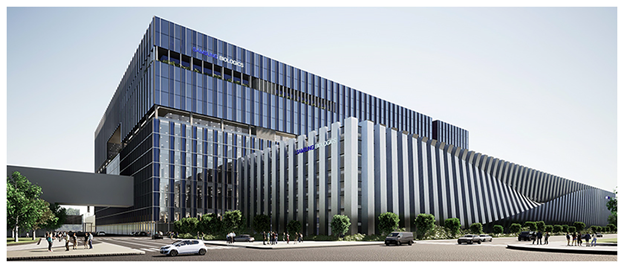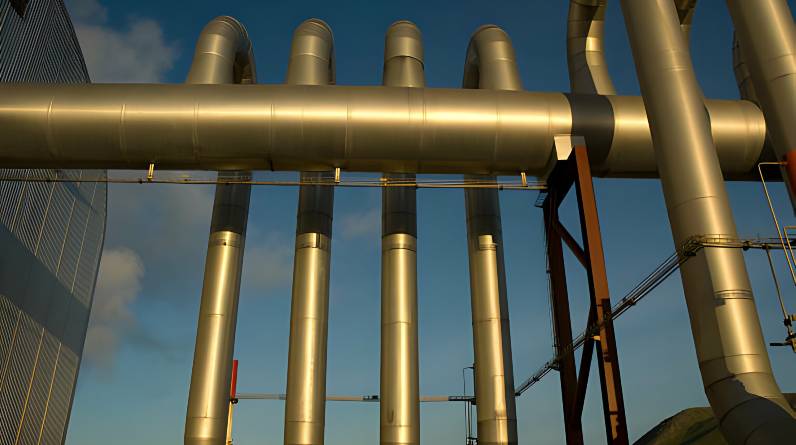
Contract development and manufacturing organization Samsung Biologics has signed a $183 million manufacturing deal with pharmaceutical giant Pfizer in March. The deal was made public as part of regulatory filings by the CDMO and Pfizer Ireland Pharmaceuticals, but no details on what would be manufactured were announced.
The deal marks the first collaboration between the two companies, and its total value matches 15% of the CDMO’s 2021 revenue, according to the filing. It will run through 2029.
Samsung Biologics continues to sign large deals as more pharmaceutical companies are turning to outsourced manufacturing options. In 2022, the CDMO signed a second deal with GSK valued at $296 million over 10 years.
These deals signal the scale of Samsung Biologics’ manufacturing capacity, which it has focused on expansion in recent years. The CDMO currently has three fully operational plants at its Songdo, South Korea, headquarters, and recently began partial operation of its fourth plant. Plant 4 is expected to become fully operational this year.
Samsung Biologics has already signed numerous deals with top pharmaceutical companies for projects at Plant 4. It is in talks with several other potential clients.
“We have built our facilities in a two-to-three-year time span, which is 40% faster than the norm, and currently have four plants with a capacity of over 600,000 liters. This amounts to around 25% to 30% of the total global contract manufacturing capacity,” explained John Rim in a recent Newsweek interview.
“With this capacity, we develop drugs for our clients across major diseases like cancer, immunology, and COVID-19. Our sales are aligned with the global pharma trends, so the U.S. takes around 50% of our portfolio, while Europe is at 30% and the rest of the world 20%. The majority of our clients are big pharma companies like Roche, Novartis, GSK, or Eli Lilly.”
Multidimensional CDMO Expansion
Thanks to deals like those with Pfizer and GSK, Samsung Biologics has made significant progress toward its goal of multidimensional expansion.
The CDMO has an established reputation as an industry leader in the development and manufacture of monoclonal antibodies, but it has also made a concerted effort to build up its business in other modalities.
One of Samsung Biologics’ efforts in 2022 involved completion of an end-to-end mRNA vaccine production suite. This suite allows the CDMO to produce the active mRNA drug substance needed for vaccines along with the final drug product used by consumers, all at the same facility.
Samsung Biologics completed its first commercial-scale production using this new suite in 2022, and plans to continue to pursue mRNA partnerships as the technology improves and applies to diseases beyond COVID-19.
The CDMO also fully acquired Samsung Bioepis in 2022. This former joint venture with Biogen has already produced several approved biosimilars, therapeutics that mimic the active component of biologic medicines. The company makes biosimilars that treat autoimmune diseases and cancer, and it has therapeutics for applications in ophthalmology, hematology, endocrinology, and gastroenterology in the pipeline.
Samsung Bioepis has received FDA approval for a high-concentration version of Hadlima, a biosimilar that references Humira. The industry’s most prescribed drug, Humira is expected to lose significant market share to biosimilars in the coming years, as its patent is set to expire in 2023.
Furthermore, Samsung Biologics plans to pursue new modalities such as antibody-drug conjugates and cell and gene therapy. The company is building a new ADC facility at its Songdo headquarters, and it has invested in two biotech companies, Jaguar Gene Therapy and Senda Biosciences, through the Life Science Fund, which it runs with Samsung C&T.
To continue its expansion efforts, Samsung Biologics has purchased land for the development of its second Bio Campus. The CDMO will begin construction on the campus in 2023 when it breaks ground on Plant 5, which is expected to add 180,000 liters of capacity to bring Samsung Biologics’ total to 784,000 upon its completion in 2025.
Bio Campus 2 will also be home to three more new plants and an open innovation center designed to help Samsung Biologics encourage collaboration with startups in the growing biotech hub. The CDMO plans to invest a total of 7.5 trillion South Korean won (about $6 billion) in the new facility.
Rim summarized the CDMO’s objectives for the coming year in his interview.
“We are planning to grow across three distinct dimensions,” he said. “First of all, we will continue to expand our capacity via our Bio Campus 2. Secondly, we intend to further grow our portfolio through more diversified modalities such as an antibody-drug conjugates program that will hopefully be up and running by 2024. Thirdly, we are interested in increasing our geographical footprint beyond our R&D center in South San Francisco with a sales office in New Jersey and Boston.”





